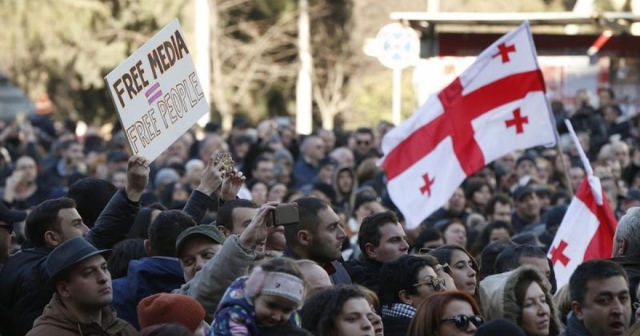Human Right Watch Publishes Key Findings About Georgia
Human Rights Watch (HRW), an American-founded international NGO that conducts research and advocacy on human rights, has published its World Report 2018 - “The Pushback Against the Populist Challenge,” which includes key events from Georgia’s last year.
Constitutional reform, lack of accountability for police, media freedom, controversial drug policy, right to privacy, sexual orientation and gender identity and problems in labor rights were highlighted by the HRW as the most important issues of 2017 in Georgia.
The NGO reports that the ruling Georgian Dream (GD) party in 2017 rushed to approve constitutional reforms to complete Georgia’s evolution to a parliamentary system of governance, without securing a broader political consensus.
“The Venice Commission, the Council of Europe’s advisory body on legal affairs, positively assessed the reform, but saw postponement of the move to a fully proportional electoral system as “highly regrettable” and “a major obstacle to reaching consensus,” the report reads.
The HRW also stressed that Georgia does not have an effective independent mechanism for investigating abuse by law enforcement officials.
“Investigations, if launched, often lead to charges that carry lesser, inappropriate sanctions, like abuse of office, and rarely result in convictions. Authorities often refuse to grant victim status to those who allege abuse, depriving them the opportunity to review investigation files,” the NGO added.
As for the drug policy, which is a very controversial issue in Georgia, the NGO says Georgia maintains punitive criminal drug policy for drug users, adding authorities continue to use harsh drug laws to criminally prosecute people who use drugs, while treatment options remain limited.
The report also says that the new constitution defined marriage “as a union of a woman and a man,” entrenching the definition that had existed for years in the civil code. Rights groups feared that using the constitution to reinforce a barrier to same-sex marriage could feed widespread homophobia. The Venice Commission said the clause should not be interpreted “as prohibiting same-sex partnership” and urged Georgia to provide legal recognition of civil unions for same-sex couples.
Furthermore, the HRW reports that every year dozens of workers die and hundreds suffer injuries as a result of occupational accidents, adding Georgia is failing to introduce effective health and safety measures at the workplace.
The section of media freedom of the 2018 HRW report involves the Rustavi 2 TV ownership dispute case, also the recent developments of the state-financed Georgian Public Broadcaster, which stopped the majority of political shows, and stopped airing two joint programs with Radio Free Europe/Radio Liberty.
By Thea Morrison












